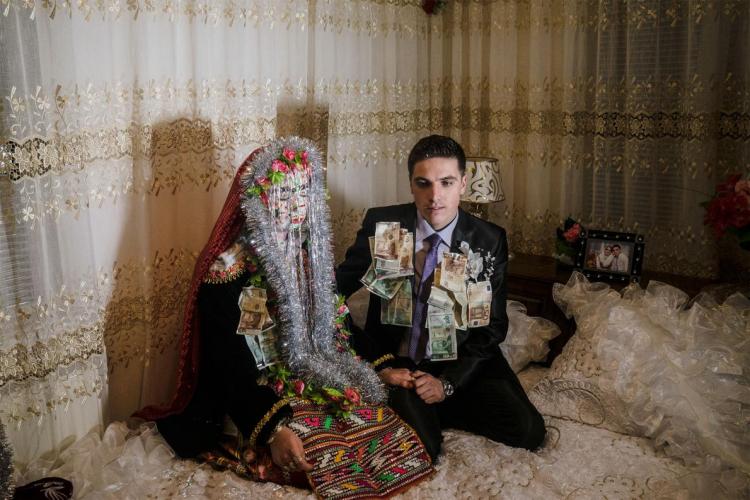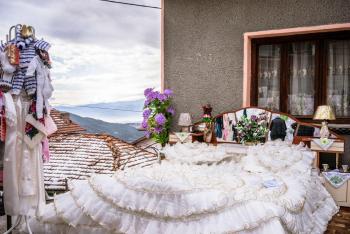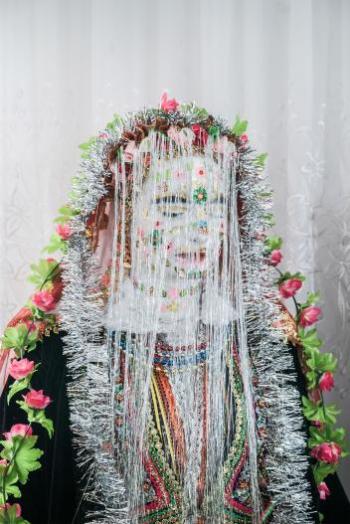Getting married?
Stop wasting your time!
Tell us what you need
Some beautiful wedding pictures of muslim wedding in Europe are being shared on social media channels.
In Ribnovo, Bulgaria, the traditional winter weddings of Slavic Muslims also known as Pomaks, span two days and involve the entire village.
The Syrian refugee crisis has brought international attention to Muslims in Europe.
As photographer Guy Martin shows in his photos of Ribnovo, Bulgaria, Muslim communities have long been an established part of the Continent.
Ribnovo Pomak weddings last for two full days, spanning all of Saturday and Sunday. Every winter weekend in Ribnovo, you can see people dancing, eating, and building elaborate bedrooms to celebrate new brides and grooms.
These bedrooms, says Martin, are setup early on Saturday morning outside the bride’s family’s house. They’re meant to show family, friends, and neighbors what the couple’s new life will look like—and also to show off: The bigger and more elaborate the set-up, the better.
Soon thereafter, friends and neighbors arrive with presents, which they drop off outside of the bride’s family’s house. Martin says the bride’s family also constructs a 20-foot-tall (six-meter-tall) wooden scaffolding outside the house, where people hang “blankets and rugs and carpets and clothes—[some] handmade, some bought—for the new bride and groom to have in their new home.”
After the morning bedroom spectacle, the bride’s family hosts a Saturday-afternoon celebration. Pomaks eat, pin money on the bride and groom, and dance the traditional houra in the village square. Later, in the evening, the bride and her friends might paint their hands with henna. Young people will end the night at coffeehouses, smoking and talking.
The next day, it all happens again. The bedroom set and the gifts come out in the morning; the groom’s family hosts another party in the afternoon.
The bride is lifted to her feet with her eyes closed and walked out of her parents' house. Martin says that’s symbolic, “because she’s leaving that house and will not come back there to live.”
At that point a crowd gathers outside, and the bride and groom stand before them for up to an hour, receiving gifts and having their pictures taken (all with the bride’s eyes still closed). An imam might say a blessing or a prayer. Then the bride begins her ceremonial walk to the house of her husband’s family.
“The bride and groom—it doesn’t matter if they live next door to each other or if they live a mile away from each other—will have to walk … while her eyes are closed,” says Martin.
Source: National Georgraphic


